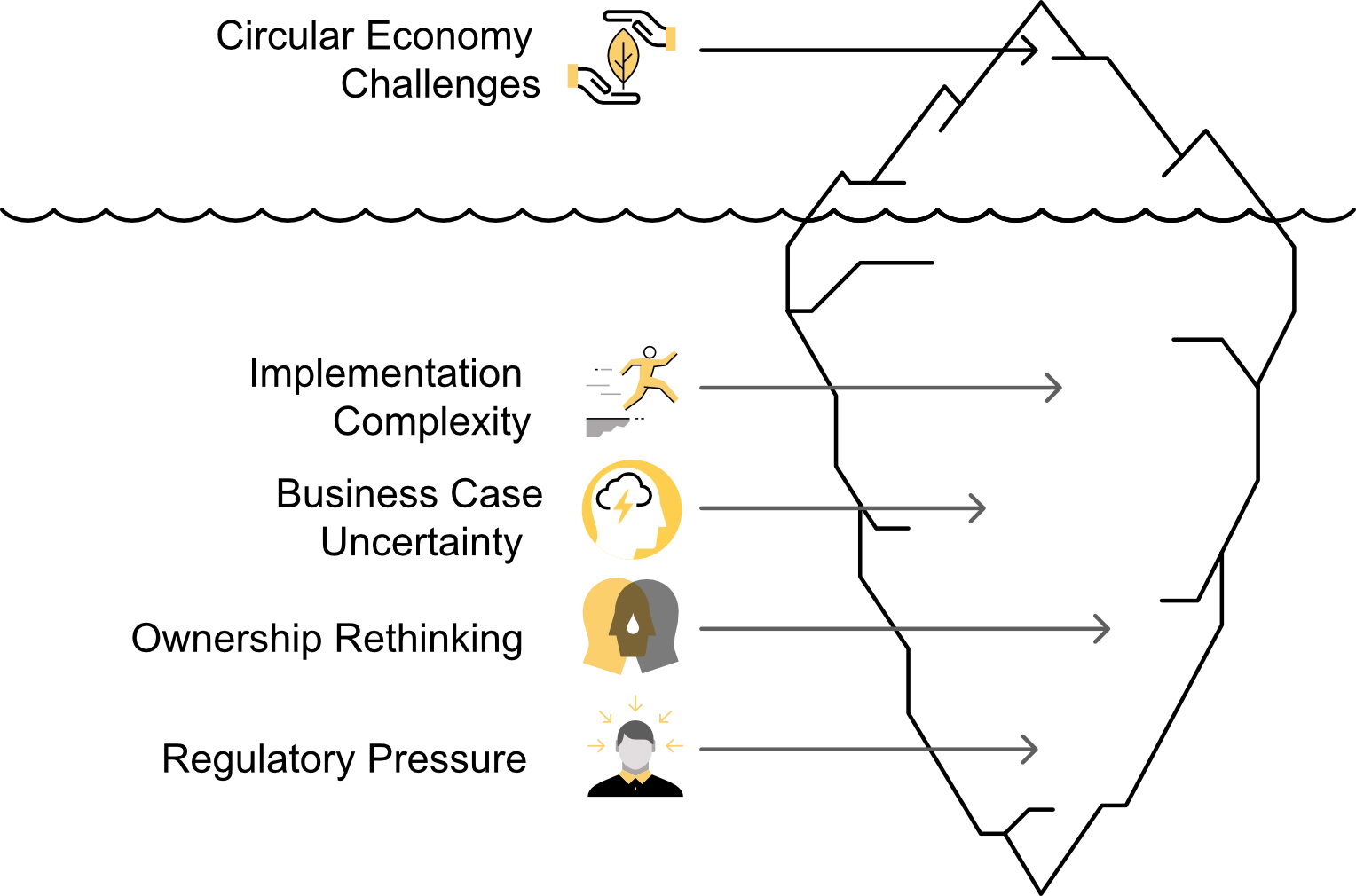
Circular Economy & Product-Service Systems
Transform Your Business from Linear to Circular
The traditional ‘take, make, waste’ model is no longer sustainable. Resources are depleting, regulatory pressure is increasing, and customers are demanding more sustainable alternatives. Businesses that fail to adapt risk losing relevance in an economy shifting toward circularity.
At The Product Architects (TPA), we help companies transition from linear business models to circular, product-service systems (PSS). We guide organisations in identifying applicable Sustainable Development Goals (SDGs) and developing a roadmap to integrate circular economy principles into their core strategy. Our approach enables companies to reduce waste, unlock new revenue streams, and build long-term resilience.

Why Circular Economy & PSS Matter
Many businesses struggle with sustainability because:
- Circularity seems difficult to implement, creating uncertainty about the most effective entry point.
- Sustainability initiatives often lack a clear business case, leading to stalled execution.
- Shifting to a service-oriented model requires rethinking ownership, which impacts business models, logistics, and customer relationships.
- Regulatory pressure is increasing, pushing companies toward sustainable solutions whether they are ready or not.

By adopting a Product-Service System (PSS) approach, companies can create value beyond product sales by integrating services, ensuring product longevity, and embedding sustainability as a key business driver. This shift not only reduces environmental impact but also improves profitability, customer experience, and brand positioning.
Our Approach: From Linear to Circular in Six Weeks
Our structured six-week sprint helps companies transition to circular business models with minimal risk and maximum impact.
Week 1: Discovery & Research
- Assess the current business model and value streams
- Map SDG opportunities and circular economy potential
- Align key stakeholders and define sustainability goals
Week 2-3: Circular Sprint & Prototyping
- Design product-service combinations that shift ownership models
- Define circular economy strategies (reuse, remanufacturing, repair, leasing, or pay-per-use models)
- Develop first prototypes and validate core assumptions
Week 4-5: Iteration & Validation
- Gather customer feedback on circular offerings
- Optimise business case for service-based revenue streams
- Identify behavioural triggers to drive circular adoption
Week 6: Roadmap & Execution Plan
- Deliver a structured implementation roadmap
- Align business case with operational feasibility
- Develop strategies to scale circular solutions and embed them in company operations

Who Benefits from Circular Economy Strategies?
Our approach is ideal for:
- Companies looking to future-proof their business through sustainable revenue streams.
- Manufacturers and product companies wanting to extend product life cycles and shift from ownership-based to service-based models.
- Innovation teams and sustainability managers seeking structured methods to implement circular economy initiatives.
- Executives and policymakers aiming to align with SDG goals and upcoming regulatory shifts.
What You Gain
- A clear roadmap to transition from a linear to a circular model
- A validated PSS strategy that integrates sustainability with profitability through behavioural triggers for maximum adoption
- A structured process to embed circular principles into product and service offerings
- An action plan that aligns with SDGs, reduces waste, and improves market positioning
Let’s Redefine Sustainability Together
Circularity is not just about compliance, it creates a competitive advantage. At TPA, we provide the expertise, frameworks, and tools to help your business transition from product-based transactions to long-term, sustainable value creation.
Book a 30-minute discovery session to explore how circular economy strategies can future-proof your business.


